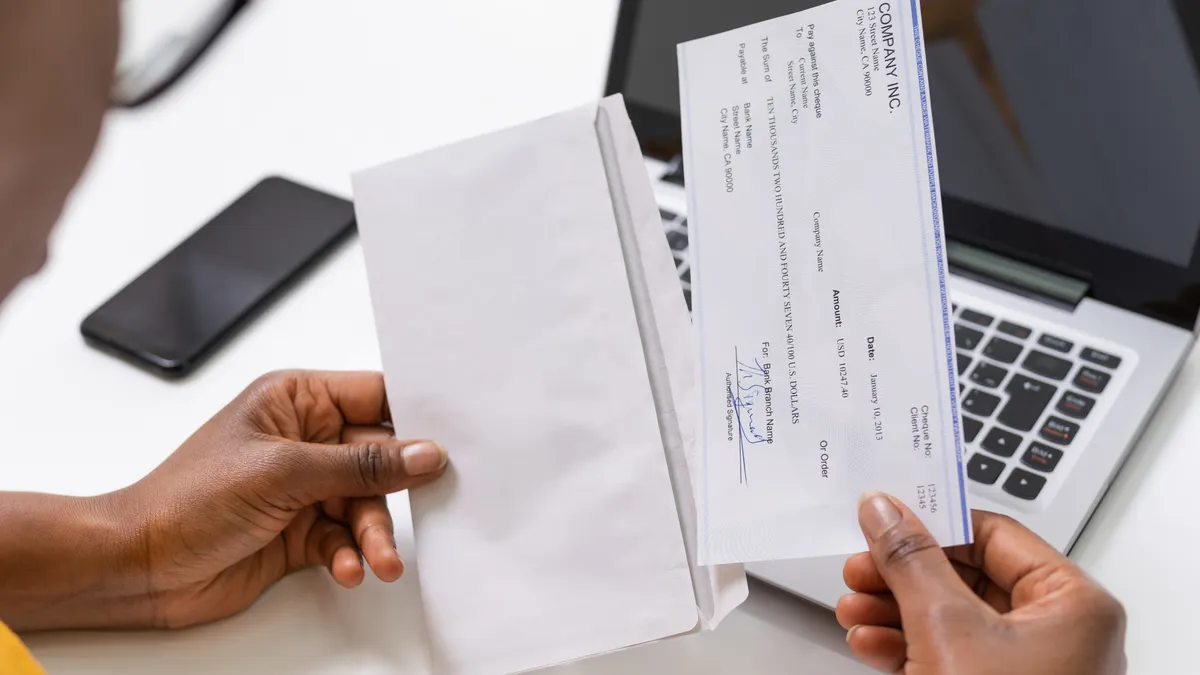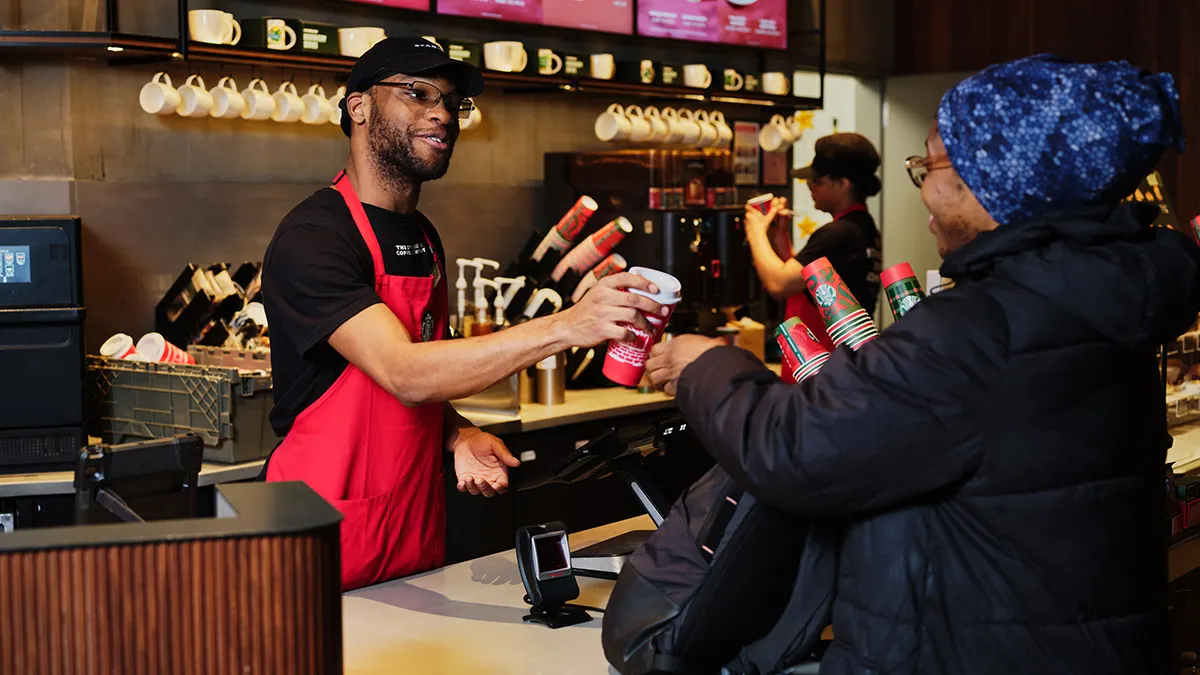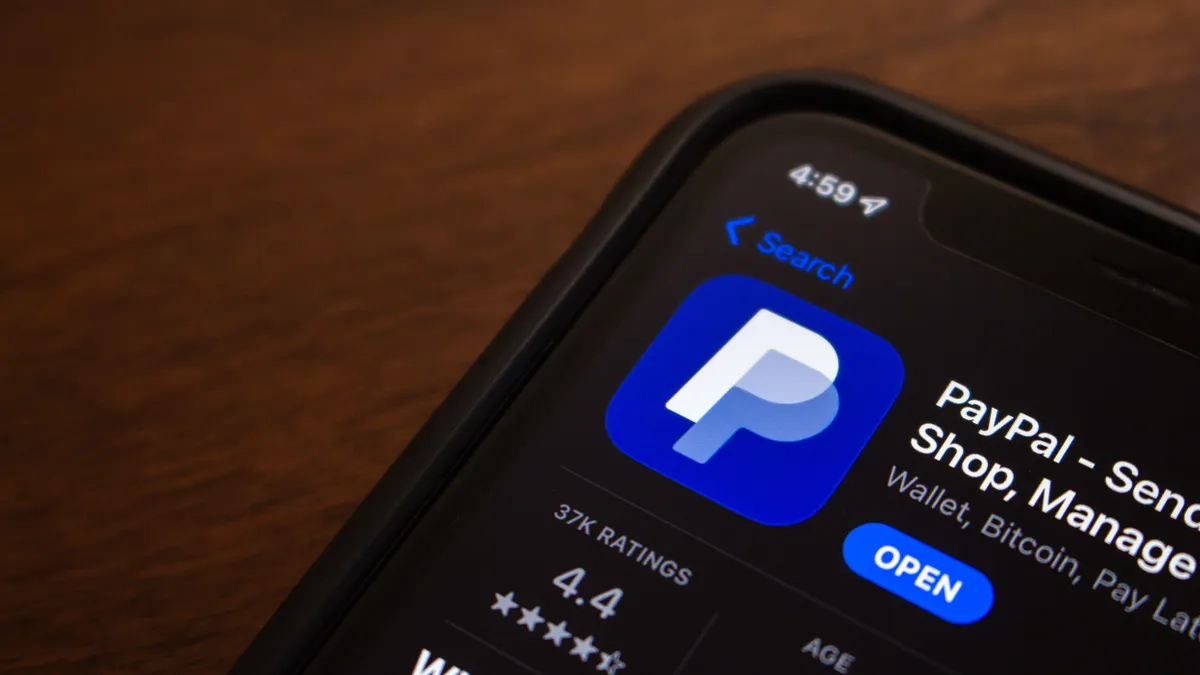Deluxe, known as the provider of paper checks, isn’t counting on customers clinging to checks forever, but a pivot to faster-growing segments hasn’t come quick enough to stem a revenue decline.
While only about 2.5% of consumer payments are still made by check in the U.S., after years of decline, business and government are still dependent on checks. President Donald Trump is fueling the latest shift away from that inefficient paper product, mandating that federal government agencies toss aside the use of checks by the end of September.
Minneapolis-based Deluxe understands the direction the payments industry is headed. The company is leaning into its non-paper enterprises, with payments processing; business-to-business payments services; and the sale of marketing data now accounting for two-thirds of its $2.1 billion in annual revenue, Deluxe CEO Barry McCarthy said in an interview this month. Meanwhile, the sale of checks drives just $700 million of income.
“We've been very, very clear that we are taking the company's legacy in paper payments to grow a large digital payments and data business,” McCarthy said. “We are taking the resources, the relationships, the brand recognition, the trust we have on the paper payment side to build tremendous momentum on the digital payment side.”

The 21st-century strategy appears to be working. The publicly-traded company doubled its net income last year to $52.9 million over 2023 on a revenue increase of 5.4% to $384 million, according to its annual filing in February with the Securities and Exchange Commission.
McCarthy is pivoting Deluxe’s focus after consolidated revenue for the company declined last year by 3.2%, “due to the continuing secular decline in order volumes for checks, business forms, and some business accessories,” according to the annual filing.
On the flip side, the company’s fastest-growing business revolves around the trove of data it has collected from more than 100 sources, including its consumer customers over the years. That marketing business, based in New York, is growing at a 20%-plus clip annually.
The data includes everything from information on divorces and car leases to births and elderly parents to business locations and new bank accounts. Then it sells that information to businesses focused on servicing consumers, such as property and casualty insurers, telecommunications companies and retailers.
“We know all of this information at massive scale, I think it's over a trillion unique pieces of data about small businesses and consumers in the United States,” McCarthy said. “All of those businesses hire us to provide them a target list of who to go market to, and then we can deliver the marketing message all the way to that end customer.”
To be sure, the data business is still the smallest of Deluxe’s three non-check segments, accounting for 11% of revenue. The other two, including payments processing and business-to-business payments services, drive 18% and 14%, respectively, according to the SEC filing.
In the processing business, Deluxe competes against the larger payments processors, such as Fiserv and Global Payments, by pitching itself as a more customized option, McCarthy said. The merchant acquiring services include managing credit card and debit card acceptance for small to mid-sized businesses. Clients include independent sales organizations, insurers, niche retailers and banks that resell the services, as well as government entities.
The bigger rivals “are so largescale, they have to do it one way and one way only,” McCarthy said of his larger competitors. “If you want different settlement windows, you want different feature functionality, it's very hard for them.”
McCarthy knows the processing business well because he spent 14 years at the processor First Data before it became Fiserv. After being appointed CEO of Deluxe in 2018, he focused the company’s strategy, partly by divesting some entities that didn’t fit with the other major parts of the business.
The third non-check segment at Deluxe is its business-to-business division that offers accounts receivable and payable services to companies as they shift their payments processing away from paper-based methods.
About “40% of those (business) payments are still made by paper check today, both inbound and outbound, so there is still a massive opportunity,” McCarthy asserted.
Despite the Deluxe’s efforts to move away from its more traditional manual services for businesses, more than half of the company’s revenue, 57%, still comes from paper-based products, including promotional materials and business forms, according to its annual filing.
McCarthy knows that Deluxe needs to do a better job of marketing its non-paper services if it wants to keep building its electronic payments business. “We have marketing and sales work to do to get the story out,” he acknowledged.





















